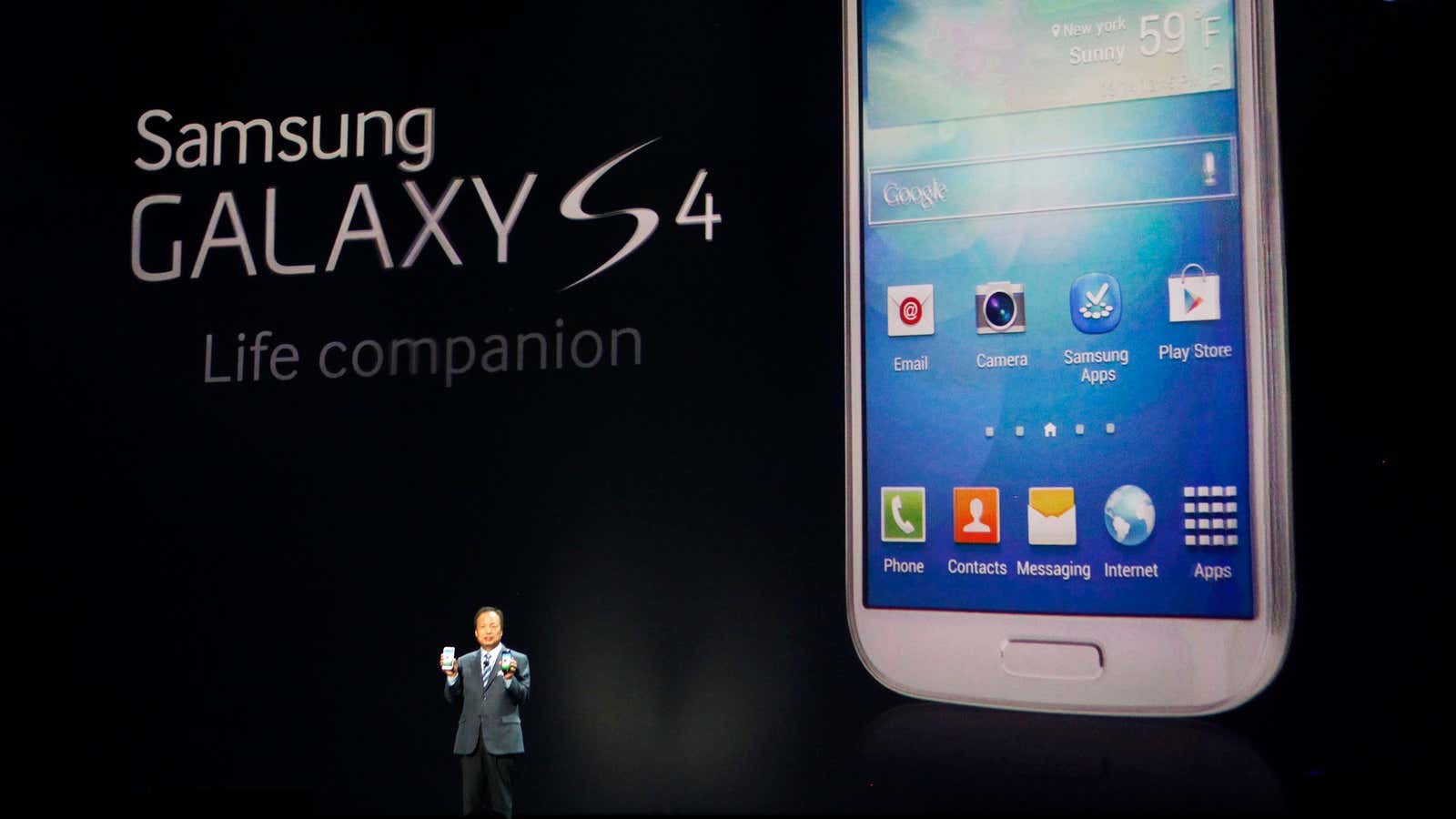Last night’s unveiling of the much-anticipated flagship smartphone from Samsung, the Galaxy S4, was so over-stuffed with gimmicky features and intriguing new technologies that it was easy to miss one of the most significant details of the evening: The number of countries in which the Galaxy S4 will be available after its launch in April.
But first, a little perspective: When it launched in September 2012, Apple promised that by the end of the year, the iPhone 5 would be available on 240 carriers in 100 countries. At the time, Apple marketing chief Phil Shiller said it was the company’s “fastest phone rollout ever.” Wide availability was key to the iPhone 5 becoming the bestselling smartphone of all time, eclipsing in the third quarter of 2012 the sales record previously set by Samsung’s last flagship phone, the Galaxy S3. And yet, at a Goldman Sachs’ technology conference in February of 2013, Apple CEO Tim Cook pointed out that Apple is only in half the carriers worldwide that it could be. Cook was implying that Apple has huge potential for growth just by getting itself onto those carriers, which is true. But the more important question is, why haven’t they?
Now compare those numbers to the announcement made by JK Shin, head of Samsung Mobile, at last night’s event in New York: The Samsung Galaxy S4 will be available on 327 carriers in 155 countries—that’s 36% more carriers than the iPhone 5 and 55% more countries. It’s also even wider availability than what was announced for the Galaxy S III, which debuted in 296 carriers in 145 countries.
Will all those extra carriers mean the S4 will outsell the iPhone 5 or, since the two company’s product cycles are out of step, the iPhone 6? There are too many other variables—the lack of carrier subsidy of the iPhone in most countries, the accelerating popularity of Android in emerging markets—to make that a particularly revealing question. And even if carrier reach is—as Apple itself implies—so important, if the 55 extra countries Samsung is making the Galaxy S4 available in all have the population of, say, Tuvalu, they hardly matter.
But what this does highlight is that, even though Apple’s Cook is often hailed as the master of supply chains, Samsung is opening up a gap with Apple that has nothing to do with the strength of its devices. That, plus the company’s enormous marketing budget, are an advantage that has the power to make natural consumer preference—the classic Coke vs. Pepsi taste test—increasingly irrelevant.
